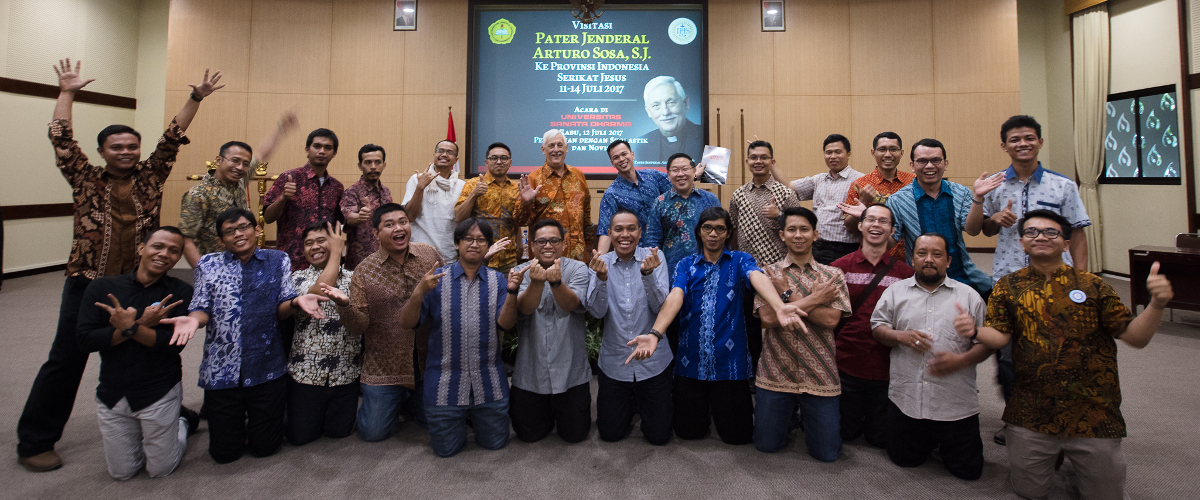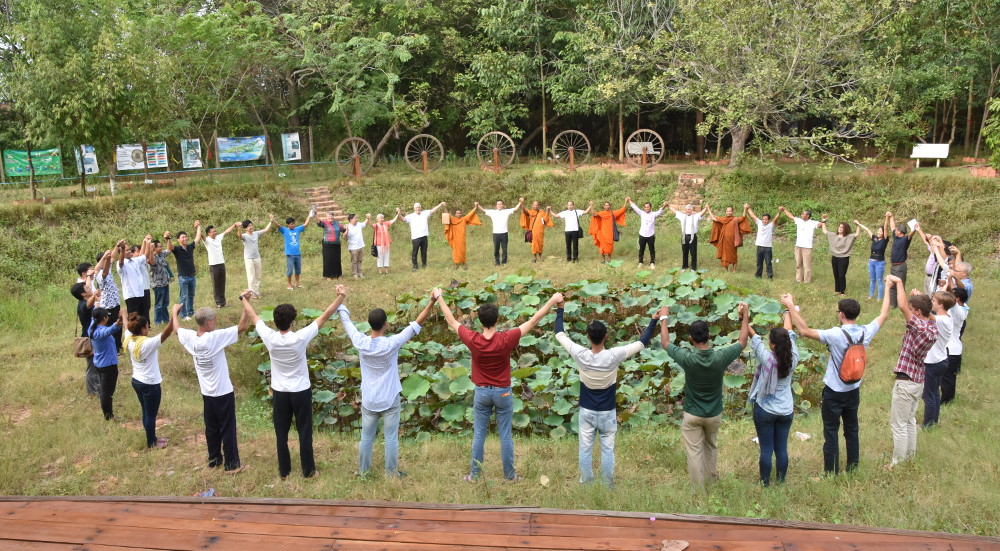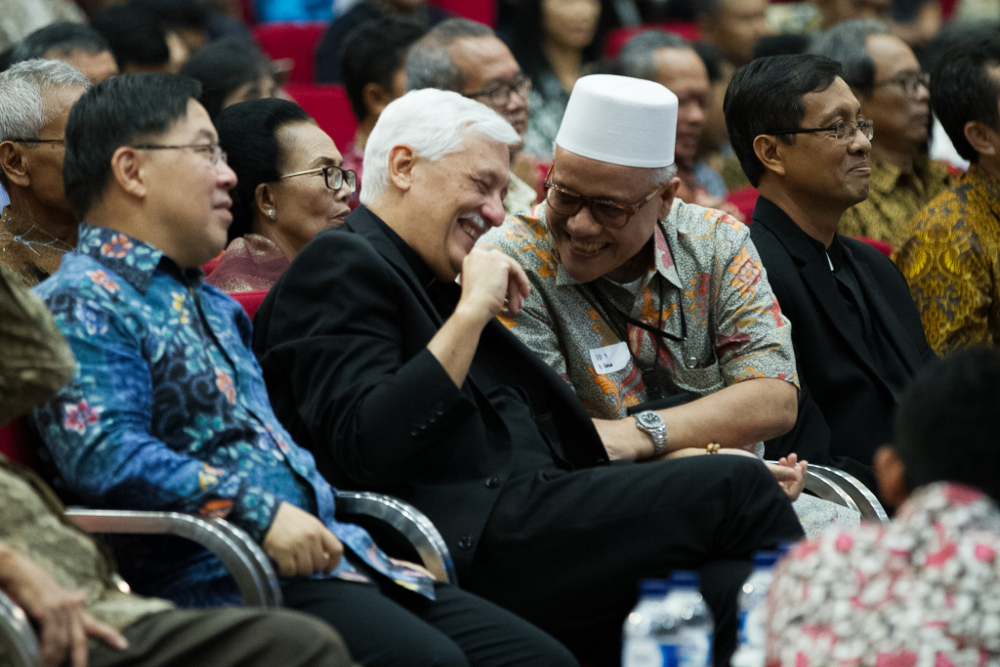
As a young Jesuit, Fr Arturo Sosa feared being sent away from Venezuela. “I was so enthusiastic about the mission in Venezuela that I didn’t want to hear ‘can you go …?’” he shared. Now he finds many young Jesuits thinking the opposite and asking, “When are you sending me out?”
“Young men are drawn to join the Society by the witness of Jesuit missionaries, but when they become Jesuits, they have to remember that they are not Vietnam Jesuits, Myanmar Jesuits, etc but they belong to a universal Society, which means they have to be available for the universal mission,” he stressed.
“It is different to be available from the desire to go out. Availability for mission means ‘to be sent’ – it is not just a ‘desire to go’. ‘To be sent’ is different,” said Fr Sosa. “To be sent to another region, to another country. And to be sent to your country, that is also a mission because the mission in your own culture is not always easier, citing as an example the rejection Jesus faced when he began preaching to his own people.”
“Availability is not only to go outside. Staying, because you received a mission, is also a kind of availability,” reiterated Fr Sosa.

This is important in Asia where the local Churches are young and small.
“I think that what the Jesuits in Asia are doing to build and grow the local Churches is a very important contribution to the international mission of the Society and of the Church,” said Fr General in an interview at the end of his first visit to East Asia in July.
His perception is that the challenge for the Church in Asia is how to incarnate the Gospel in each culture and, for a Christian in Asia, how to have a Christian life that is rooted in his or her own culture.
“The tension is there,” Fr Sosa observed, describing this as a “difficult equilibrium” between preserving and developing the richness of cultures and traditions in Asia and the effects of globalisation, and economic and social developments.
Remembering his visit to the Jesuit mission in Cambodia, Fr Sosa said, “They have a Cambodian way of expressing the Virgin Mary and it is very rich because even if you are not Cambodian, you can recognise the universal symbols of the Catholic Church and see the cultural tradition of the country in them.
“A Cambodian can identify with that image and also the Catholics. In Indonesia you have something like that too. Also in Latin America, also in Africa, no? That’s the richness of the Church in that sense.”
For the Jesuits in Asia Pacific, Fr General says one challenge is how to do the common discernment that General Congregation 36 calls for in a context where Christians are a minority.

“We have to do common discernment in our different communities. We have been invited to make common discernment with the lay people with whom we share the mission. But also we are invited to discern together with people who don’t have the Christian faith, and that’s a challenge,” said Fr Sosa.
“How do we dialogue with people who do not share our faith but who are committed to the apostolic mission?” he asked. “The [Spiritual] Exercises say that God communicates with every human being. That means that we also have to see to perceive how God is communicating with others and how, through them, he also is communicating with us.”
One way to do this is through the sharing of lives, as he saw in Indonesia during the dialogue with Muslims in Sanata Dharma University. Some of them have taught in the Jesuit university for more than 30 years. “They identify with what the university does, they have a nice experience of teaching there and also the students experience having Muslim professors,” said Fr General. “So it is not only formal ways of dialogue. I think the real dialogue is sharing life.”
Being Christian is not to get away from. No, a young Christian has to be part of the creation of this new culture, to use the media, technology and be witnesses of the Gospel there.
To young people, he has two messages. The first is for them to be active in this changing world, to witness to their faith inside the changes in society.
“Being Christian is not to get away from. No, a young Christian has to be part of the creation of this new culture, to use the media, technology and be witnesses of the Gospel there,” said Fr Sosa.
His other message to them is to remember the poor. “Jesus Christ incarnated himself in a poor context, so if we follow Jesus in his incarnation in humanity, we cannot leave behind the poor.
“The invitation to young people in the Church – and the Jesuits – is to be close to the poor. Closeness to the poor is a dimension of our Christian faith and that brings us very near to Jesus’ way of doing things.”

